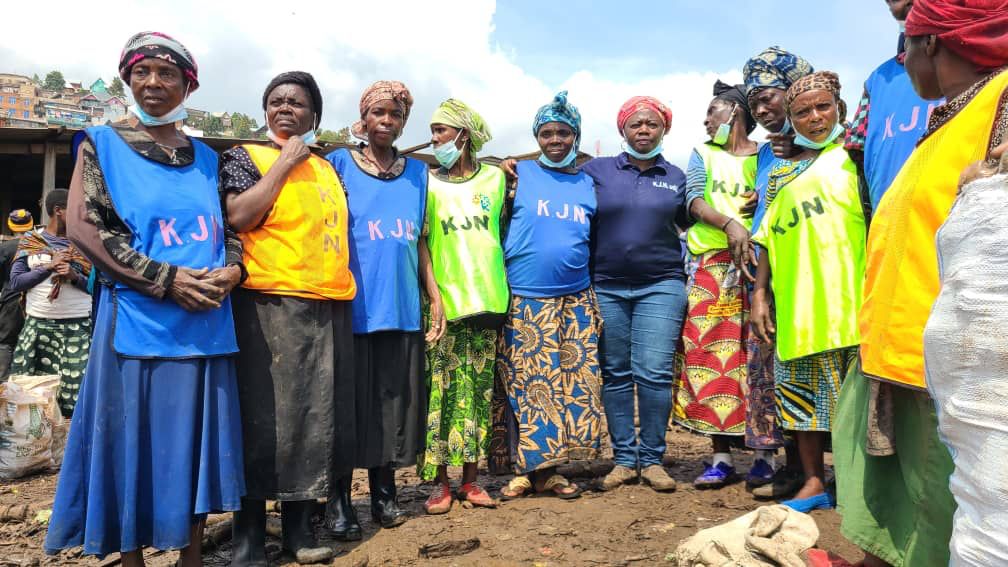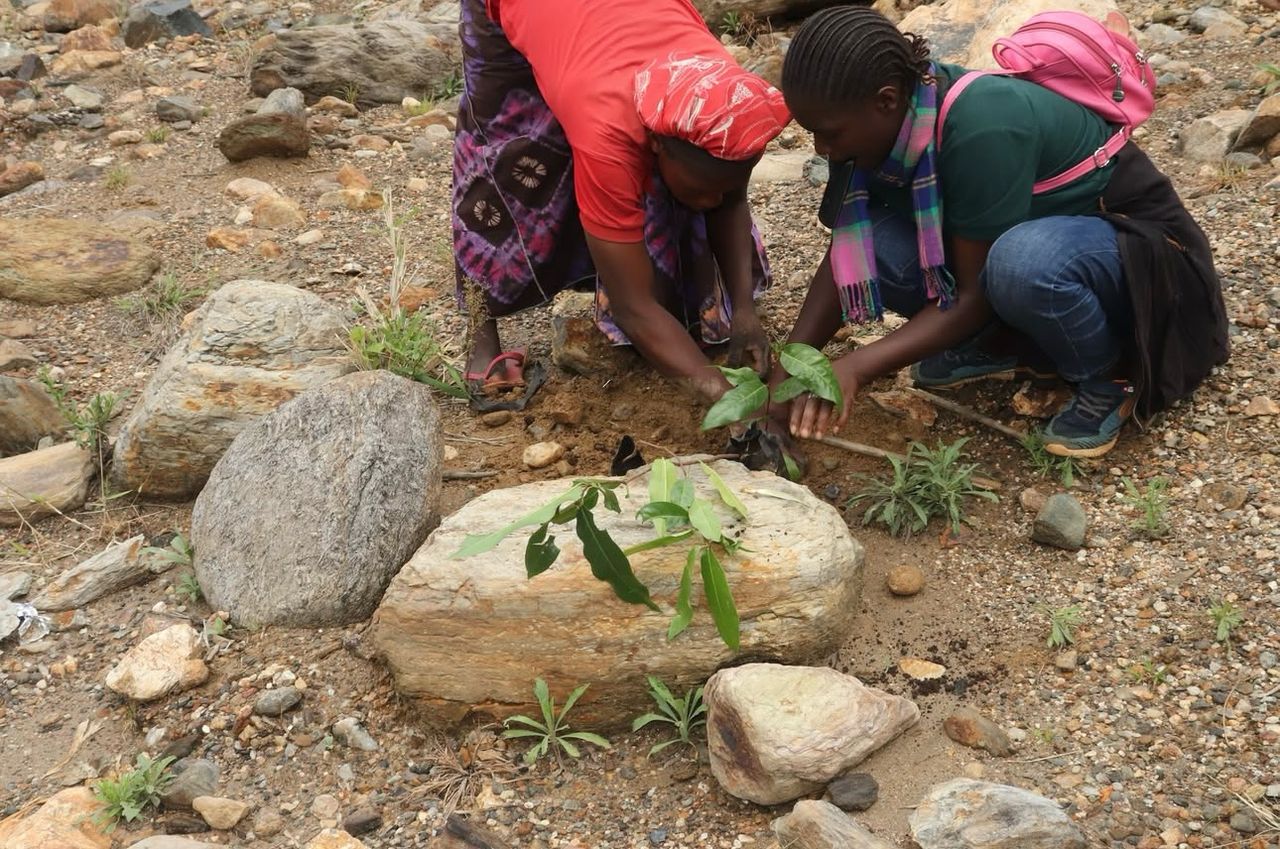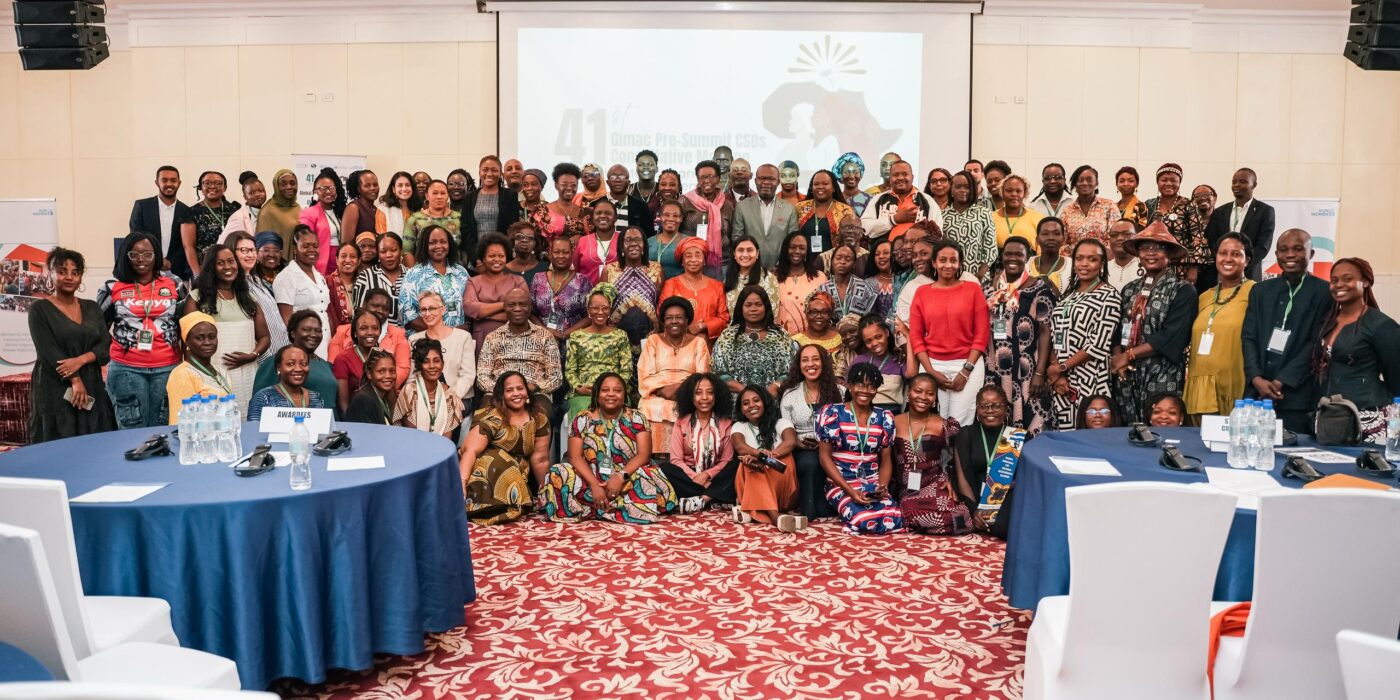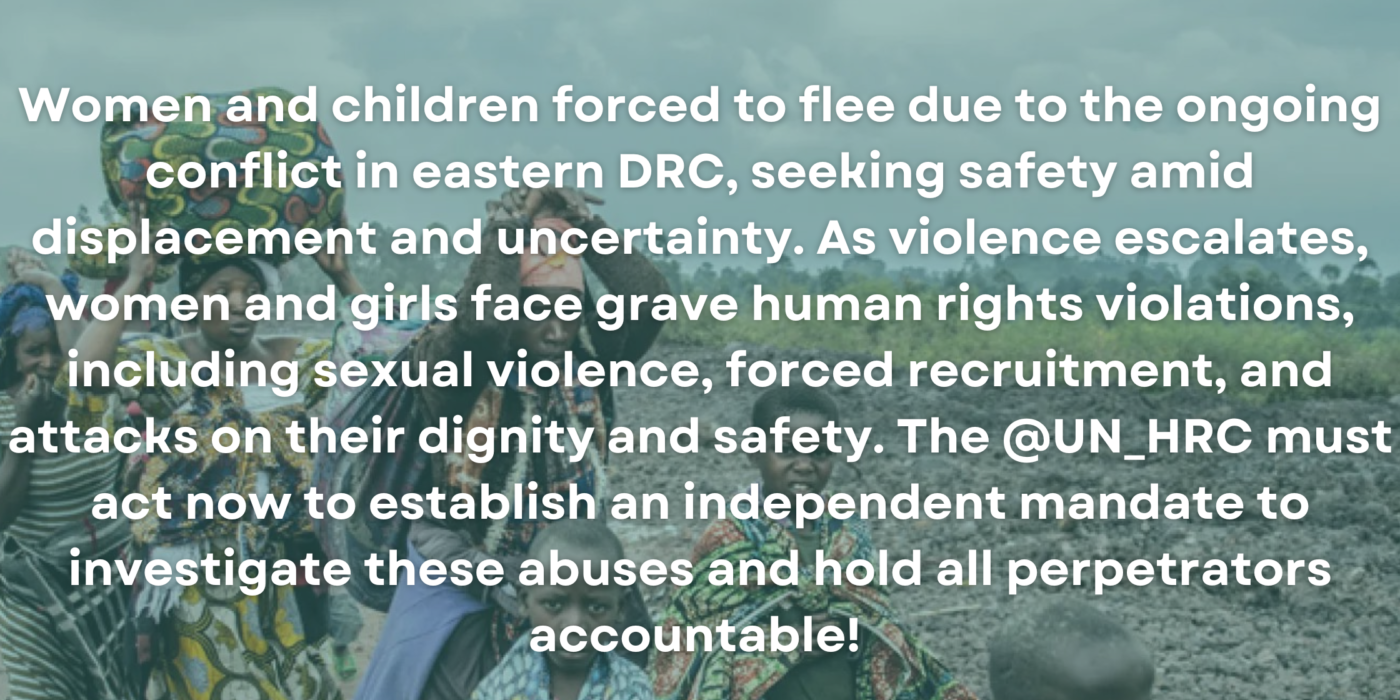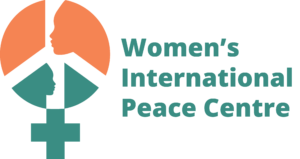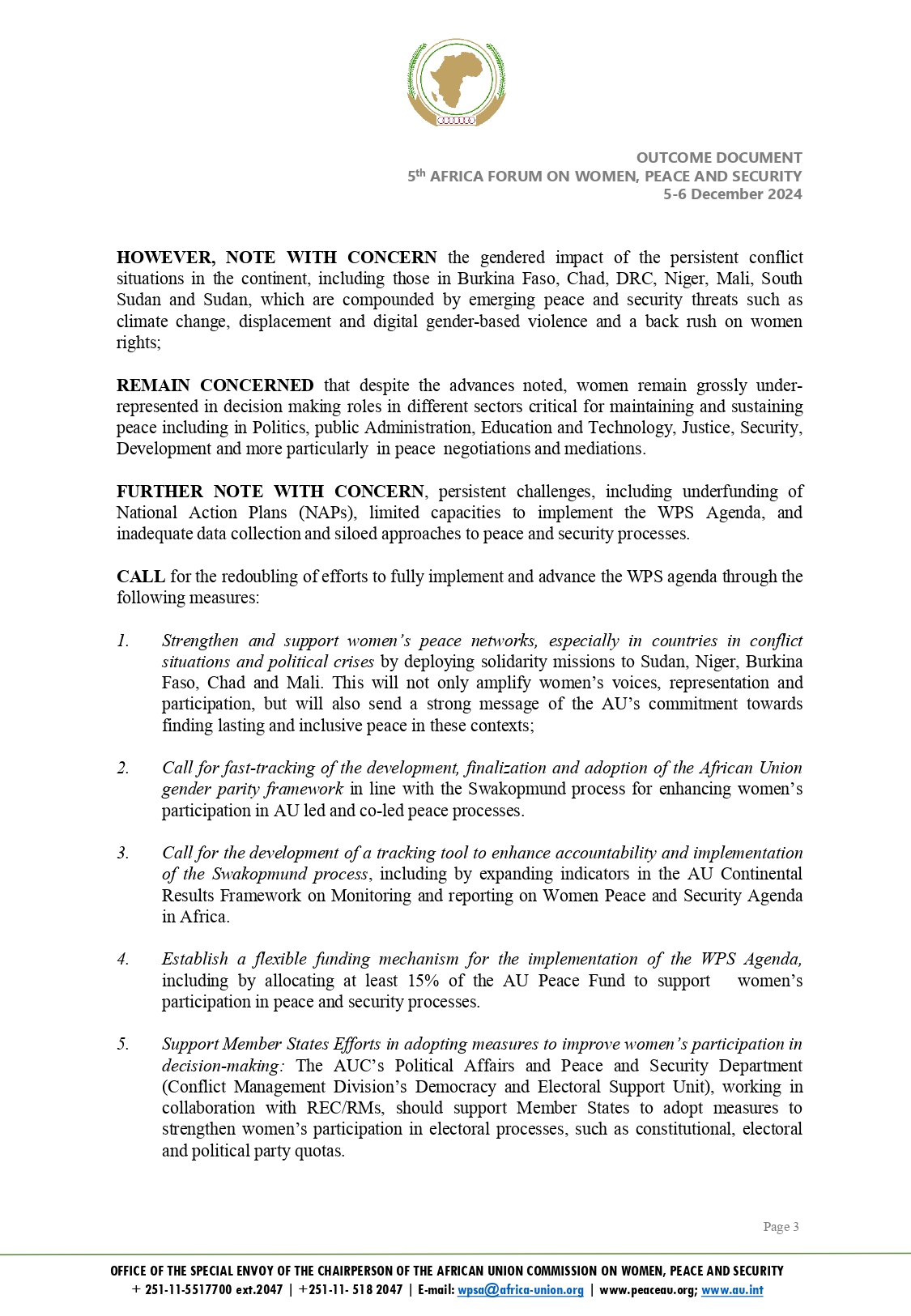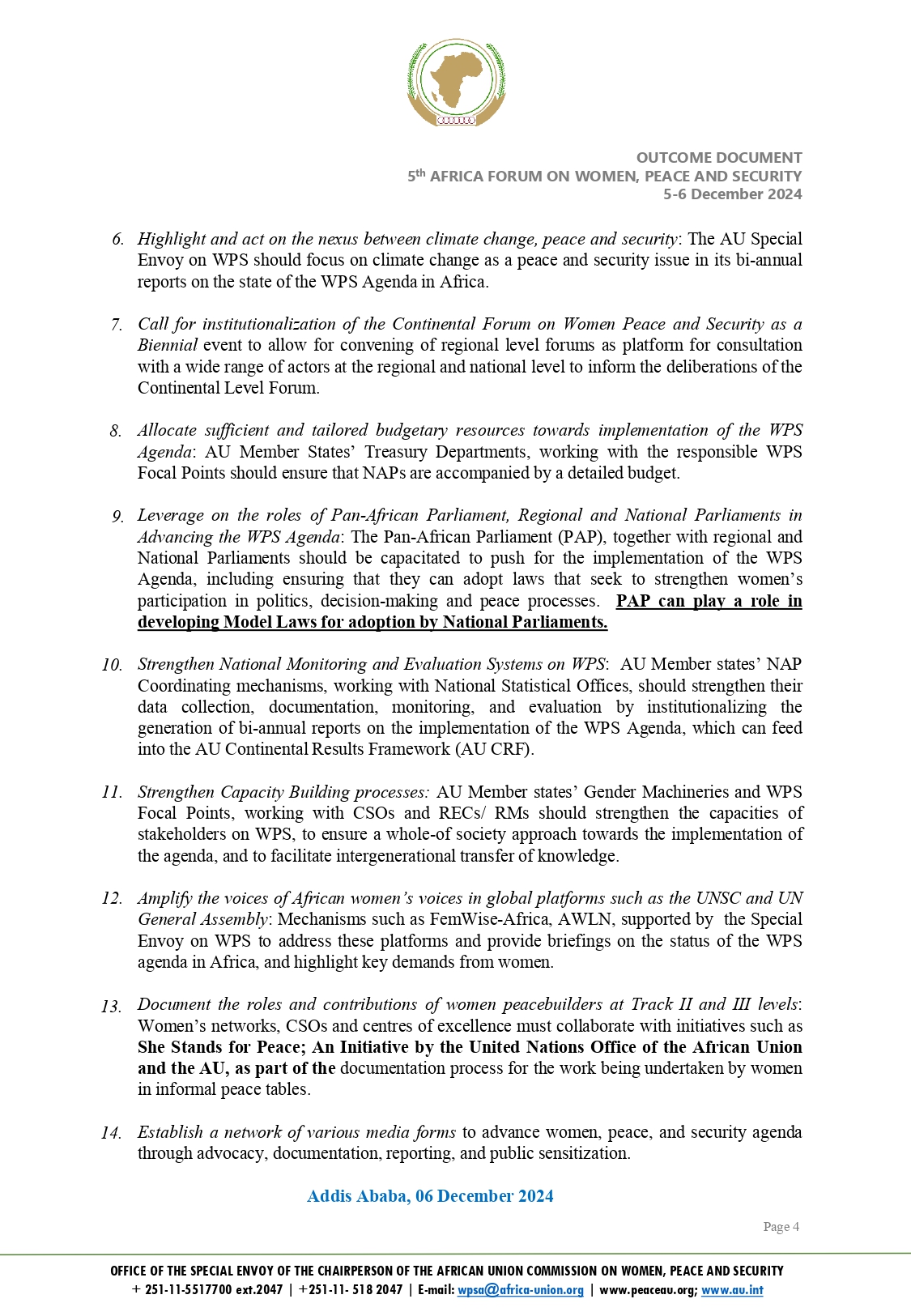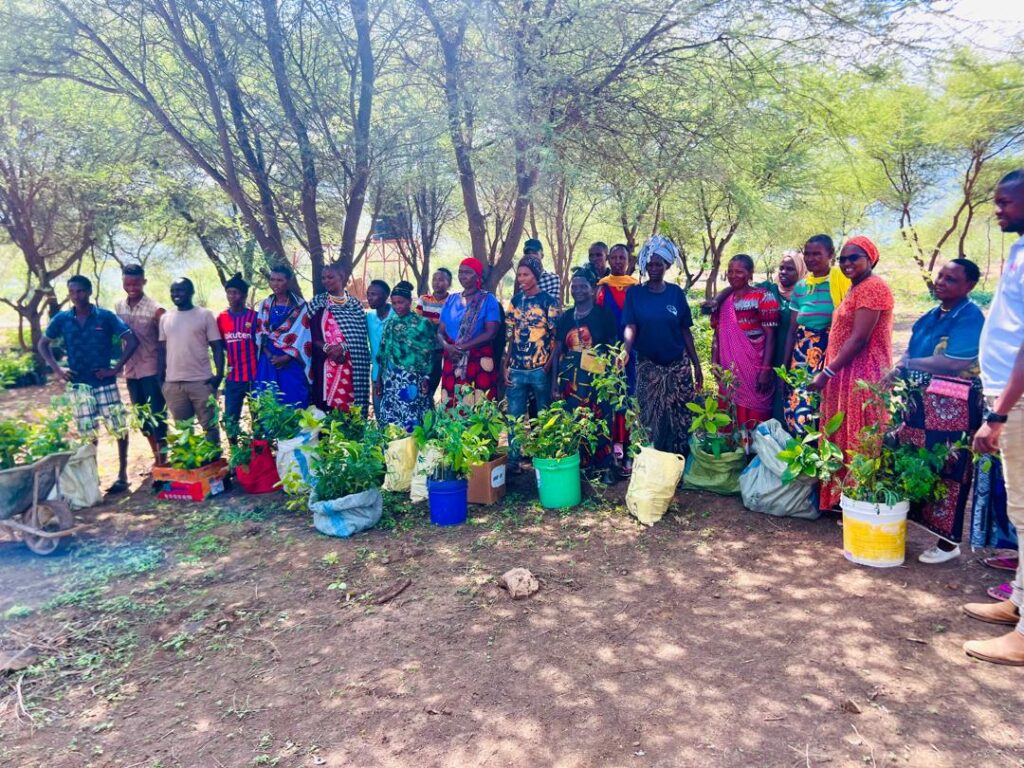
As the conflict in the DRC continues to spiral with Goma, Kalehe, Bukavu and the bigger Eastern DRC territories being captured by the M23, our efforts to combat climate change and promote climate justice have been put on hold. The crisis has disrupted our ongoing programs that seek to address the interconnected challenges of climate crisis and gender inequality. Women in the DRC, like those in many conflict-affected areas, are already facing the brunt of climate change impacts, such as food insecurity, water scarcity, SGBV and displacement due to environmental factors. However, with the conflict escalating, these climate impacts are only becoming more severe.
The links between climate change and conflict are not abstract—they are deeply felt on the ground.This interplay between climate change and conflict compounds the risks women face. As they struggle to adapt to a changing environment, they also face the constant threat of conflict-induced harm.
With over 6.9 million people displaced by violence in the DRC—58% of whom are women and 14% children under 5—the stakes couldn’t be higher. As access to food and water becomes increasingly difficult, women are forced to risk their lives in search of survival, further isolating them and making it even harder for them to engage in climate adaptation efforts or assert their autonomy.
Undermining Women’s Rights and Climate Justice Efforts
 The intensifying conflict has placed significant barriers in the way of our climate justice and gender equality work. Programs aimed at empowering women and protecting them from violence have been delayed or even suspended due to the prevailing insecurity. Humanitarian access—critical for providing aid, including life-saving sexual and reproductive health services—has been severely restricted. Local initiatives, such as safe spaces for survivors of sexual violence, education programs, and healthcare services, have been interrupted, leaving women vulnerable to violence not only in displacement camps but also within their own homes.
The intensifying conflict has placed significant barriers in the way of our climate justice and gender equality work. Programs aimed at empowering women and protecting them from violence have been delayed or even suspended due to the prevailing insecurity. Humanitarian access—critical for providing aid, including life-saving sexual and reproductive health services—has been severely restricted. Local initiatives, such as safe spaces for survivors of sexual violence, education programs, and healthcare services, have been interrupted, leaving women vulnerable to violence not only in displacement camps but also within their own homes.
In the DRC, 52% of women will experience SGBV in their lifetime, and 39% of girls will be married before the age of 18. These statistics underscore the urgent need for action, but the ongoing violence makes addressing these issues even more challenging for us.
Our partnerships with organizations like the Zaida Catalan Club for Peace and Security, Karibu Jeuness Nouvelle, and Women in Action for Human Dignity (WAHDi asbl), supported by the Global Fund for Women, focus on placing women at the centre of climate justice. These programs strengthen sustainable livelihoods, women’s agency in responding to the climate crisis , and environmental conservation—all of which are integral to improving women’s well-being and creating community resilience. Unfortunately, in the face of violence, these initiatives are stalled.

The Women of DRC have been playing a vital role in our community-based climate resilience efforts. Their participation in sustainable agriculture, forest conservation, and the protection of natural resources is not only key to their own survival but is critical to the broader environmental sustainability of the Congo and the entire region. However, these efforts are stymied by the violence that continues to plague the country. When women are denied safety and security, their ability to participate in climate justice initiatives is severely compromised.
These programs are not only vital to mitigating the impacts of climate change but are also directly tied to improving the resilience of women in the region. Women in the DRC, especially in rural and conflict-affected areas, are crucial actors in environmental stewardship—from sustainable farming practices to forest conservation. But as the situation deteriorates, their ability to engage in these efforts is severely restricted, further exacerbating the vulnerability of their communities to climate impacts.
Women in the DRC, especially in rural and conflict-affected areas, are crucial actors in environmental stewardship—from sustainable farming practices to forest conservation.
Climate Justice: A Key to Women’s Empowerment
Climate justice is not just about reducing emissions or conserving biodiversity—it’s also about recognizing the unequal ways that climate change impacts different populations, particularly women and girls. In the DRC, where women are already battling against gender-based violence and inequality, the effects of climate change amplify their struggles. The loss of natural resources, such as clean water and arable land, drives displacement, fuels conflicts over resources, and deepens poverty. For women, this translates to greater workloads, heightened insecurity, and increased risk of exploitation.

If we are serious about achieving gender equality, we cannot ignore the role of climate justice in this broader fight. The work to combat the climate crisis must be inclusive, addressing the needs of the most marginalized, including women and girls in conflict zones. The climate crisis and gender inequality are not separate issues—they are two sides of the same coin. To achieve long-term peace, security, and justice for women, we must integrate climate action with gender equality efforts.
In the DRC, where both the climate crisis and conflict are rapidly worsening, we must demand urgent action to ensure that women’s rights are prioritized alongside environmental sustainability. This includes not only protecting women from the violence and destruction of war but also providing them with the tools, resources, and opportunities to participate in climate resilience efforts. Climate justice can no longer be an afterthought; it must be central to our work, especially in conflict-affected areas like the DRC.
A Call to Action: Protecting Women, Protecting the Planet
The tragic loss of life in Goma and the continued suffering of women in conflict zones is a stark reminder that the protection of women’s rights is inseparable from the protection of the planet. Women are not just survivors of climate change—they are leaders in the fight for climate justice. They are agents of change, from the local to the global level, and their voices must be heard in the conversation about climate solutions.
The women of the DRC deserve more than sympathy—they deserve action. They deserve to live free from violence, with access to the resources and opportunities they need to thrive. They deserve the right to participate in climate solutions and to be empowered as leaders in building a sustainable, equitable future for all.
By Mwanaisha Musa.

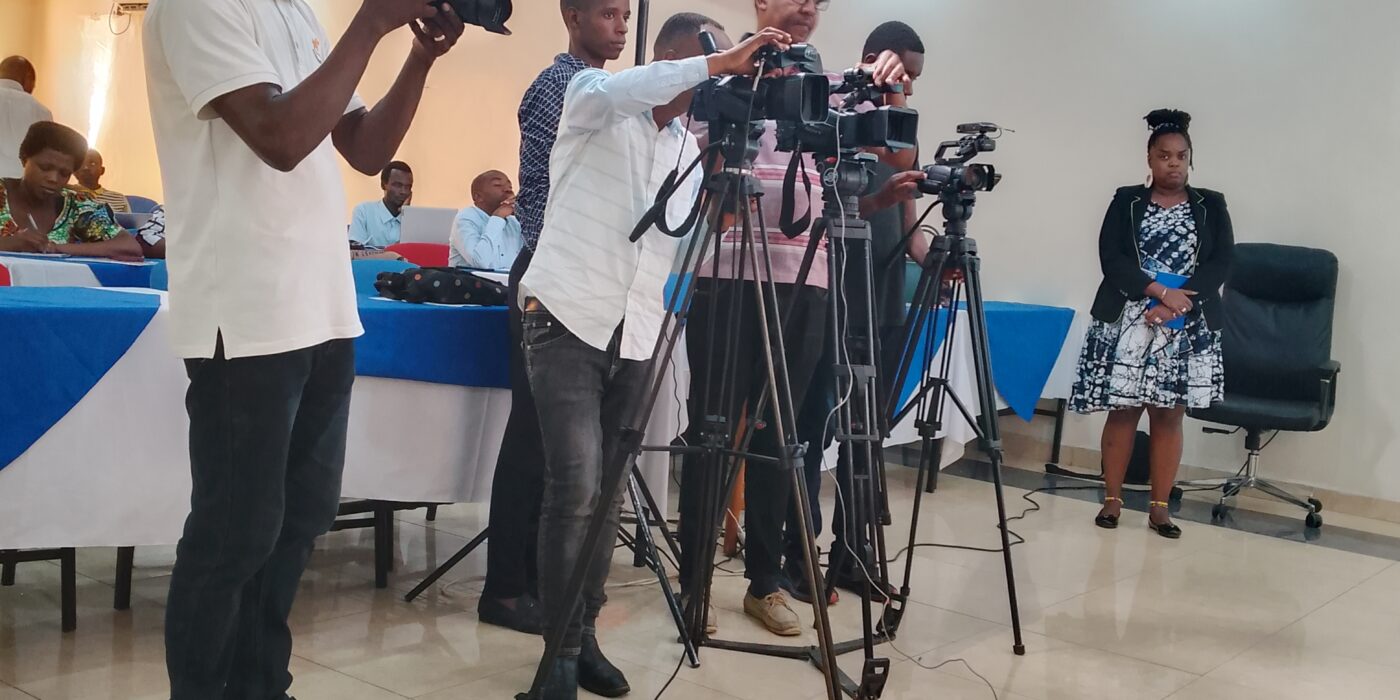
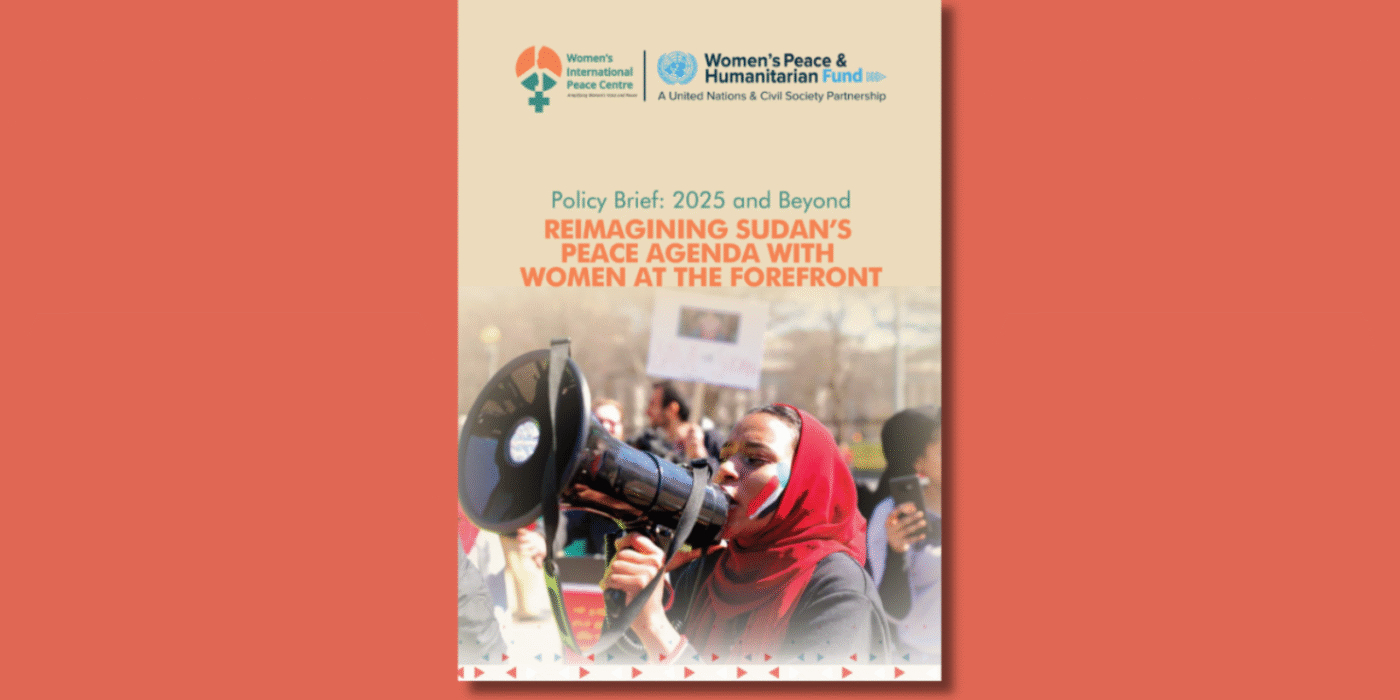
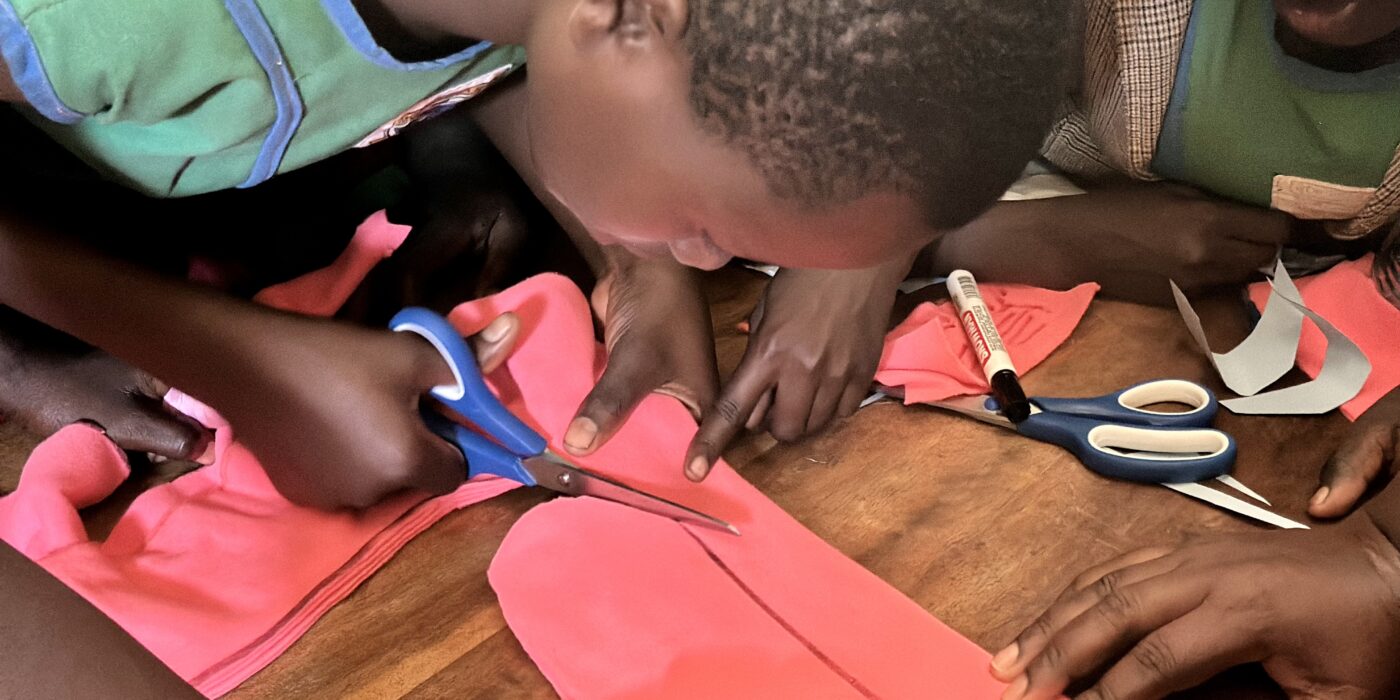


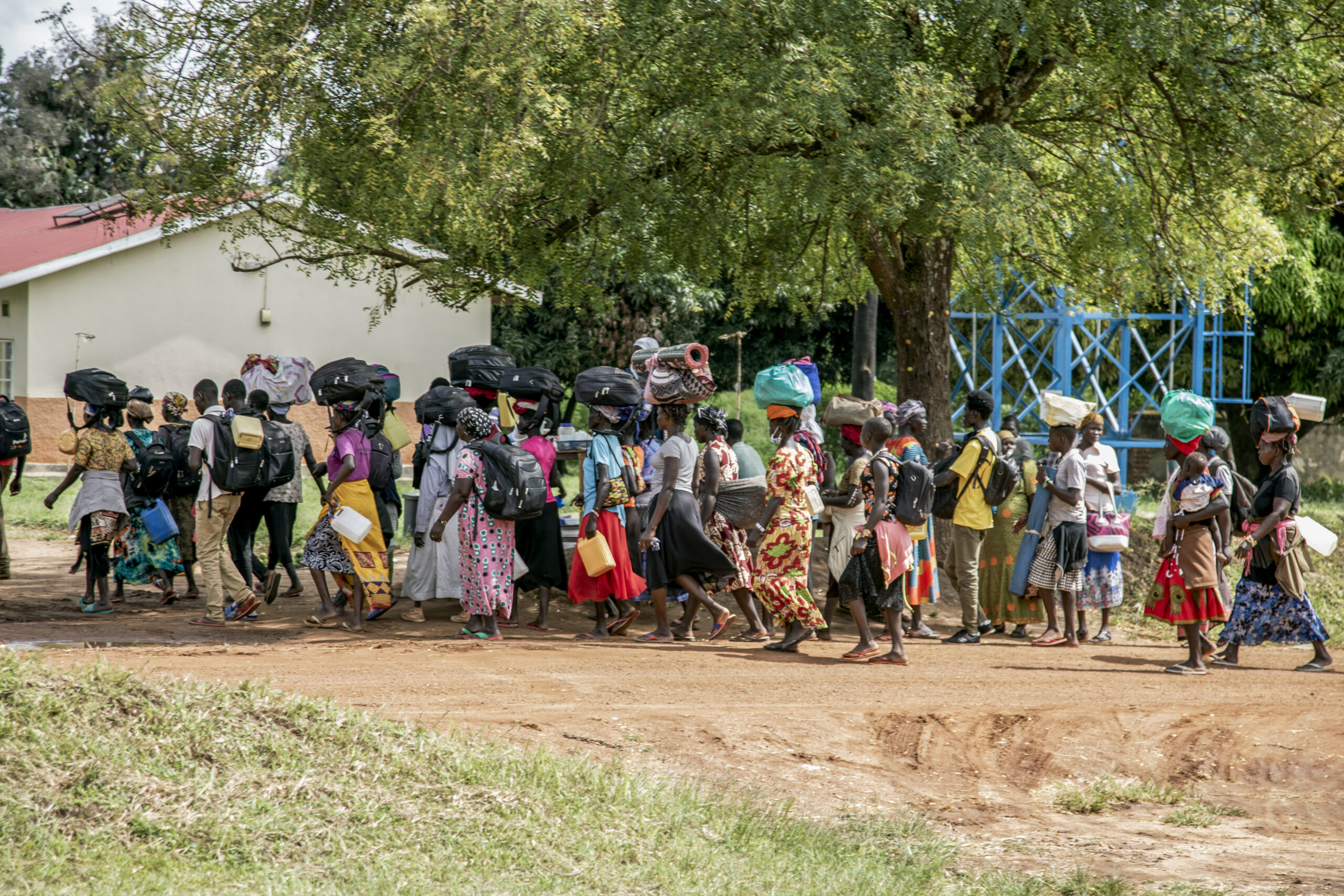
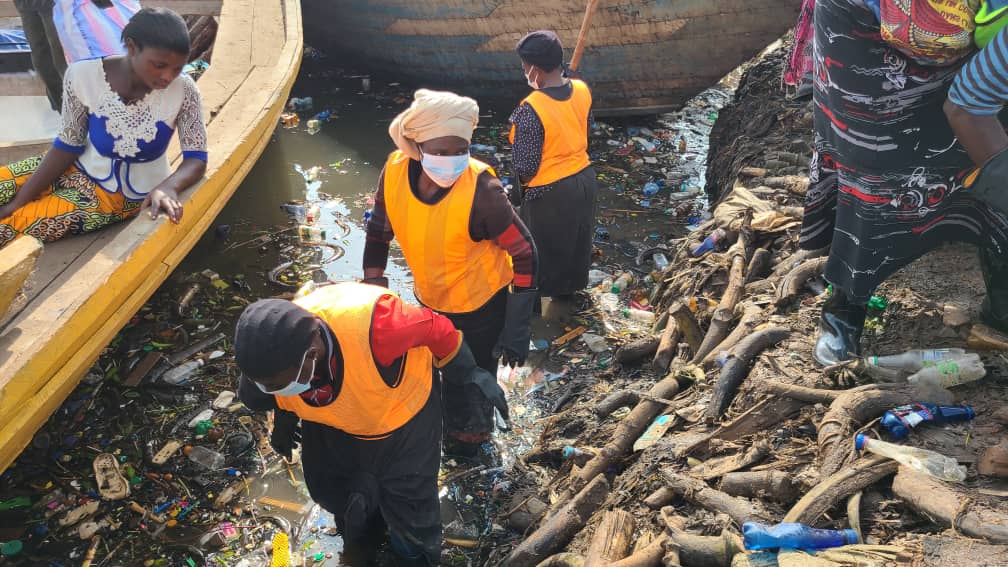 The intensifying conflict has placed significant barriers in the way of our climate justice and gender equality work. Programs aimed at empowering women and protecting them from violence have been delayed or even suspended due to the prevailing insecurity. Humanitarian access—critical for providing aid, including life-saving sexual and reproductive health services—has been severely restricted. Local initiatives, such as safe spaces for survivors of sexual violence, education programs, and healthcare services, have been interrupted, leaving women vulnerable to violence not only in displacement camps but also within their own homes.
The intensifying conflict has placed significant barriers in the way of our climate justice and gender equality work. Programs aimed at empowering women and protecting them from violence have been delayed or even suspended due to the prevailing insecurity. Humanitarian access—critical for providing aid, including life-saving sexual and reproductive health services—has been severely restricted. Local initiatives, such as safe spaces for survivors of sexual violence, education programs, and healthcare services, have been interrupted, leaving women vulnerable to violence not only in displacement camps but also within their own homes.